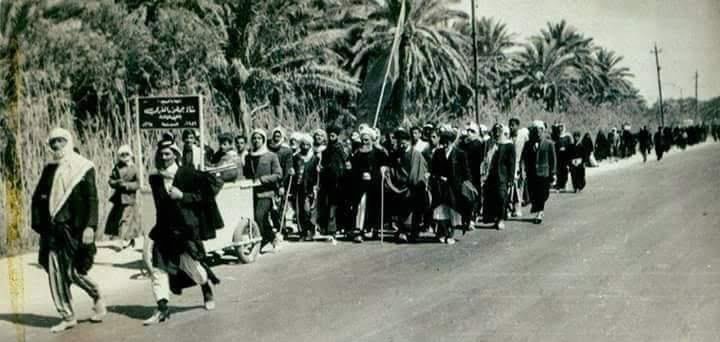A day or Two from now, Muslims culminate in their traditional ritual to commemorate their martyrdom of their Imam forty days after it occurred. Arbaeen is marked with long-mile walks to the city Karbala in Iraq and ends the mourning period in Islamic nations.
Arbaeen is the commemoration of Muslim leader Imam Hossein’s martyrdom forty days after it occurred on Ashura. Hussain, a grandson to the Islam prophet Mohammad, was killed in 680 Ad in Karbala. Muslims recall the battle of Karbala as the fight against tyranny for the promotion of Justice.
Background
‘Arbaeen’ (al-Arba‘īn) originally comes from an Arabic word that means forty. In Muslim tradition, the typical bereavement time is 40 days after the death of a person. As a result, tens of millions globally commemorate the tragedy of Karbala in Which the Muslim Imam, along with his small companions, were killed by the enemy.
Hussain was a freedom fighter in the who took the ultimate step for equality in the society. On the other side of the battle was Yazid, the descendant of an oppressive monarchy. Muslims believe that Yazid was a wicked king who infringed on the people’s basic freedom and privileges.
Yazid sought Hussain to accept his authority and provide his tainted rule with credence. Hussain, on the other hand, rejected the ruler’s will, citing his moral beliefs and convictions. The result was the violent confrontation leading to the lives of more than 72 persons.
Following the tragic events in Karbala, Yazid’s soldiers kidnapped Hussain’s family and took them to the center of ruling in Levant. They were subject to humiliation by being dragged around urban areas in chains, including Damascus and Kufa. Hussain’s family were also subject to insult by masses of people until they finally arrived in Yazid ruling center where jails was awaiting.
Muslims believe that with the death of Hussain in such a heroic way, his vision endured longer. The clarifying comments by Hussain’s sister, Zainab, in royal palace still echoes in the ear of history. Along with Hussain’s absent son at the battle of Karbala, Zainab delivered forceful speeches criticizing Yazid’s fraudulent rule.
Yazid finally realized that keeping Hussain’s family inside his court would disgrace him and found no other choice but to release them. The move facilitated the family’s way to expand the fight using the teachings from the battle of Karbala.
Arbaeen and the Test of Time
After14 centuries, Arbaeen, along with Ashura (the battle day), is commemorated by hundreds of millions all over the world. It is observed as a day to honor Hussain’s struggle for dignity, justice, and equality.
Individuals commonly organize enormous walks in multiple cities of various countries to simulate Hussain’s move’s timeless character. They also seek to demonstrate their support for social equality, tolerance, and decency.
An old practice of walking long miles from Najaf to Karbala (cities in Iraq) has been revived. the 50-mile distance attracts over 20 million people annually from across the world. The astonishment takes new sides when we understand that even non-Muslims take part in the ritual. This is while Iraq has been home to terrorist attacks and instability during the same decade.
Volunteer workers deliver free meals to pilgrims throughout the 50-mile road from Najaf to Karbala. Besides, tent-like facilities are provided for pilgrims to rest, bathe, and sleep. Arbaeen Day has proved to be world’s largest yearly nonviolent event, with attendance expected to rise dramatically each year after the pandemic.
Arbaeen has passed the test of time surviving multiple dictators in Iraq and other Islamic nations. The ritual seems to have the potential for further expansion and turning into a political and social movement in the long run.








